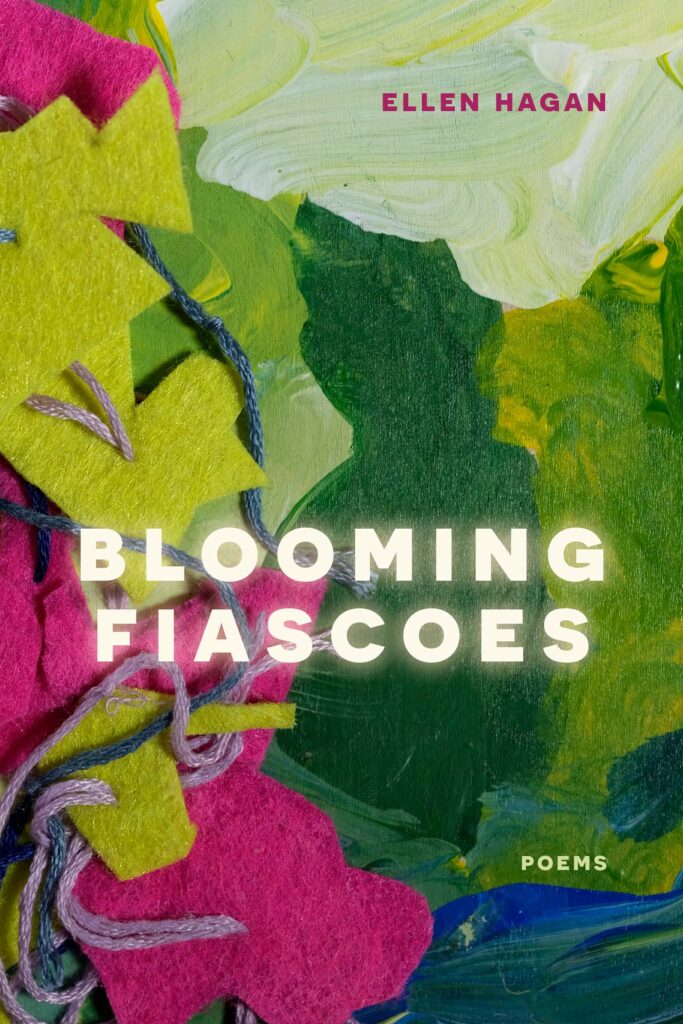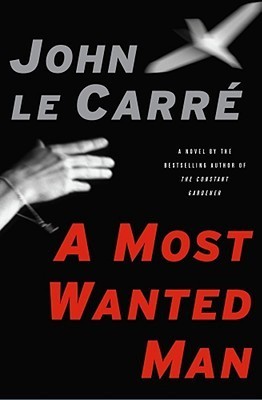Simple Passion by Annie Ernaux (translated from French by Tanya Leslie) is a short book that takes a deep dive into the impact passion can have on a life, and most likely I would not have come to this book if the author had not won the Nobel Prize in 2022. The narrator—one assumes the book is fiction, but maybe not—is a French woman who is having an affair with a married man, a foreigner, who is temporarily living in Paris. She is obsessed, although perhaps more with her own passion than with the man. She waits for his phone calls announcing a coming visit, she thinks of him when choosing what to wear, and so on. It’s all about the trysts that may or may not be coming. Eventually, the man returns to his country, as she has known he would, but that doesn’t stop her from thinking of him. I plan to re-read this book (and I’ve picked up another by the author) because the intensity of the narrator’s feeling is worth examining more closely.
Blooming Fiascoes by Ellen Hagan is a collection of poetry published last year by Northwestern University Press, which is how I came to have a copy. I do appreciate poetry, and in these poems I found the subject matter—a fair amount of personal issues and family—to be understandable, but the language off-putting. Instead of sentences, the poems are made up, often, of fragments and sometimes the fragments include words that in juxtaposition don’t seem to make sense. For example: “I feel full-on gravity. Float. Unadjusted./ Unaccustomed. Raid style showoff. Stunted/ & stunting. If I must. Say foundational. Some-/ times I mother gold & the world & you & your/ lost tooth & empty gums. Showoff. I shake/ your accustomed foundations. Foundational.” Those lines are typical of her style and I didn’t care for it. Also, the poems all use the ampersand instead of “and” and I find that annoying. Sorry, poets, I just do.
This is How They Tell Me the World Ends: The Cyber-Weapons Arms Race by Nicole Perlroth is a detailed account of how vulnerable we all are to internet-based hacking with malicious intent. My book club’s selection for November, the book is scary as hell, telling the story of the offensive use of flaws in computer code that has allowed many players—including the U.S.—to wreak havoc with their adversaries. And because computer viruses spread, it’s nearly impossible to prevent those attacks from coming back to haunt the originator. Besides that, finding the flaws in the first place is huge business, and hackers can sell their finds to the highest bidders, many of whom do not have the public’s interest in mind. The last part of the book deals with the attacks on American election systems perpetrated by Russia and others, much of which we heard about during the 2020 campaign and its aftermath. The Epilogue includes concrete steps that should be taken to secure systems, but unfortunately, these aren’t steps individuals can take. We’re all dependent on governments and companies to do the right thing.
A Most Wanted Man by John Le Carré is a terrific novel by the master published in 2008. The plot is engrossing, the characters full, and the writing is brilliant. Knowing that the author wrote thrillers and spy novels, it isn’t clear at first where this one is going, as we see a Turkish Muslim family in Germany, mother and son, give refuge to a young Chechen refugee. It develops, however, that the refugee is the illegitimate son of a Russian general who was a spy for the British, depositing laundered funds in a Viennese bank that has relocated to Hamburg. He has come, he says, to get the help of the Banker who holds the funds, even though he doesn’t want to touch the money, which he considers sinful. Meanwhile, authorities suspect him of being a terrorist, largely based on the fact that he was in jail in both Chechnya and Turkey.
Miguel Street by V.S. Naipaul is a collection of linked stories set in Trinidad published in 1959 that was recommended to me by a new friend when he learned that I had written a novel in stories (What the Zhang Boys Know). I really enjoyed these stories more than anything I’ve read by Naipaul in the past. While I wouldn’t call the book a novel, there is an arc in that we see the narrator grow up on Miguel Street, begin to understand what’s going on around him, and eventually leave Trinidad on a scholarship to study in college. Along the way, he provides portraits of many of the curious characters on the street, their various antics and schemes, and in some cases the tragedies that befall them.






I’m enjoying these brief reviews, thanks for sharing them.